40 venn diagram mutually exclusive
A two-event Venn diagram describes the relationship between two events in the following ways: If the two events are mutually exclusive, then the circles representing each event do not overlap. If the two events are not mutually exclusive, then the two circles overlap. The overlapping region represents the intersection of the two events. Thus, A and B are mutually exclusive events. On the other hand, if we wanted to know the probability of selecting an ace or a king, P(A ∪ B), we would simply sum their individual probabilities: P(A ∩ B) = P(A) + P(B) 1/13 + 1/13 = 2/13. Venn diagrams. Mutually exclusive events can be depicted using Venn diagrams.
The venn diagram below shows mutually exclusive events. However, keep in mind that B alone is not the complement of A. Complement of A = {2, 3, 4, 6} So we can write this as: { } i.e (known as the addition law of probability for mutually exclusive events) Non - Mutually Exclusive Events;
Venn diagram mutually exclusive
Venn Diagrams and Mutually Exclusive . In a Venn diagram with 2 circles, there are 6 main parts to consider. Use the Venn Diagram on the right to explain how the answer to the probability question was derived. P(English) = 14/40 = 7/20 Total number of students taking English out of the total number of students. Transcribed image text: Decide whether the events shown in the accompanying Venn diagram are mutually exclusive. Explain your reasoning. Click the icon to view the Venn diagram. I and The eventsmutually exclusive, since there Click to select your answer(s) bp Survey Results de Contri bute Do not contribute Total Male Female Total 139 106 245 250 250 500 se 144 255 ded Print Done The ... Theorem: If X and Y are independent events, then the events X and Y' are also independent. Proof: The events A and B are independent, so, P (X ∩ Y) = P (X) P (Y). Let us draw a Venn diagram for this condition: From the Venn diagram, we see that the events X ∩ Y and X ∩ Y' are mutually exclusive and together they form the event X.
Venn diagram mutually exclusive. Venn Diagram Representation of Mutually Exclusive Events Two events are shown in circles with the rectangular portion. The common portion of two elements gives the intersection of events; these events are called non-mutual exclusive events. Venn diagrams. In order to use Venn diagrams when talking about events, we must first understand the term 'mutually exclusive'. Imagine there are two events: event A and event B. Nov 25, 2021 · November 25, 2021. Are Mutually Exclusive Events Independent Youtube. Solved 3 The Venn Diagram Shows Three Events A B And C Chegg Com. Ppt Mutually Exclusive And Independent Events Powerpoint Presentation Id 313705. Venn Diagrams And Independence Ck 12 Foundation. Solve4x Tutorials Venn Diagrams Part 2 Mutually Exclusive Events Youtube. Hence A and B are mutually exclusive events, as shown in the following Venn diagram. Addition Law of Probabilities. For the example under consideration: Note: In general: Consider the experiment of throwing a die. As usual: Let the events be defined as follows: A = the event that an even number is obtained; and
Logical Relationships among Sets Mutually exclusive (disjoint): refers to two (or more) events that cannot both occur when the random experiment is formed. A∩B=Ø Exhaustive: refers to event(s) that comprise the sample space. A∪B=𝕌 Partition: events that are both mutually exclusive and exhaustive. A∩B=Ø and A∪B=𝕌. ⛲ Example 1. All the clubs are taken out of a pack of card Venn diagrams and the addition rule for probability. Venn diagrams and the addition rule for probability. ... And these type of conditions, or these two events, are called mutually exclusive. So if events are mutually exclusive, that means that they both cannot happen at the same time. There's no event that meets both of these conditions. Let's draw some Venn diagrams to better understand the concept of mutually exclusive events. Let's suppose we have two events A and B. We know that an event is the subset of a sample space, so we draw the Venn diagram for event A as follows: It follows that mutually exclusive events are those that do not share any of the same outcomes. How do we calculate the probability of these events? Let us visualize using a Venn Diagram: If \( A \) and \( B \) are two mutually exclusive events, then the probability of \(A \) or \( B \) occurring is their respective probabilities added together.
In a Venn diagram the squared area denoted e contains all possible events. The circles represent specific events. Probabilities are represented by the ratios of areas. For example, the probability of event A in the figure below is the ratio of area A to the total area e: Figure 1: Venn diagram for a single event A. Mutually Exclusive Events The following Venn diagram represents mutually exclusive (disjoint) sets. If the union of two mutually exclusive sets is the universal set they are called complementary. The intersection of two complementary sets is the null set, and the union is the universal set, as the following Venn diagram suggests. This probability video tutorial provides a basic introduction into mutually exclusive events with the use of venn diagrams.My Website: https://www.video-tut... 100% (1 rating) SOl: Mutually exclusive events that cannot both occur exclu …. View the full answer. Transcribed image text: Decide whether the events shown in the accompanying Venn diagram are mutually exclusive. Explain your reasoning Click the icon to view the Venn diagram The events are mutually exclusive, since there are movies that are ...
10. Create a Venn diagram showing the relationship between squares (S), quadrilaterals (Q), rectangles (R) and parallelograms (P). 11. In each separate Venn diagram, shade the region indicated: a) b) c) 12. Let P(A' B) 0.2, P(B) 0.5 and P(A) 0.4 a) Determine whether events A and B are mutually exclusive
In Figure 1.7, $\bar{A}$ is shown by the shaded area using a Venn diagram. Fig.1.7 - The shaded area shows the set $\bar{A}=A^c$. The difference (subtraction) is defined as follows.
Probability Rules Cheat Sheet. Basic probability rules with examples… | by rita | Data Comet | Medium
Mutually exclusive events are represented mathematically as P(A and B) = 0 while independent events are represented as P (A and B) = P(A) P(B). In a Venn diagram, the sets do not overlap each other, in the case of mutually exclusive events while if we talk about independent events the sets overlap.
Visualizing Mutually Inclusive & Mutually Exclusive Events. We often use Venn diagrams to visualize the probabilities associated with events. If two events are mutually exclusive then they would not overlap at all in a Venn diagram: Conversely, if two events are mutually inclusive then there would be at least some overlap in the Venn diagram:
Nov 19, 2021 · Venn Diagrams With Conditional Probability Lesson With Worksheet Conditional Probability Venn Diagram Worksheet Math Resources Who Is Cheating Conditional Probability Probability Flow Chart Students Will Find The Probability Of Mutually Exclusive Events Inclusive Events Use The Addition Property Two Way Tab Algebra Algebra 2 Probability Lessons Practicing Advanced Sorting With Venn Diagrams ...
Venn diagram showing sets A and mutually exclusive subsets B ⊂ A and (A... | Download Scientific Diagram
Mutually Exclusive Events. Mutually Exclusive: can't happen at the same time. Examples: Turning left and turning right are Mutually Exclusive (you can't do both at the same time) ... Instead of "and" you will often see the symbol ∩ (which is the "Intersection" symbol used in Venn Diagrams)
This problem is from the following book: http://goo.gl/t9pfIjWe start by making a venn diagram to represent chance process (probability of a randomly select...
Two Mutually Exclusive Events Two events are mutually exclusive if they cannot occur at the same time. Using Venn diagram, two events that are mutually exclusive may be represented as follows: The two events are such that The two sets E1 and E2 have no elements in common and their intersection is an empty set since they cannot occur at the same time.
Mutually exclusive events can be represented using a Venn diagram. The following Venn diagram given below shows two mutually exclusive events A and B: (Image to be added soon) If event A occurs, then there is no possibility of the occurrence of event B. Examples of Mutually Exclusive Events: There are 52 Cards in a deck:
Non-Mutually Exclusive Events. Two events are non-mutually exclusive if they have one or more outcomes in common. In the Venn Diagram above, the probabilities of events A and B are represented by two intersecting sets (i.e., they have some elements in common). Note: In each Venn diagram above, the sample space of the experiment is represented ...
Theorem: If X and Y are independent events, then the events X and Y' are also independent. Proof: The events A and B are independent, so, P (X ∩ Y) = P (X) P (Y). Let us draw a Venn diagram for this condition: From the Venn diagram, we see that the events X ∩ Y and X ∩ Y' are mutually exclusive and together they form the event X.
Transcribed image text: Decide whether the events shown in the accompanying Venn diagram are mutually exclusive. Explain your reasoning. Click the icon to view the Venn diagram. I and The eventsmutually exclusive, since there Click to select your answer(s) bp Survey Results de Contri bute Do not contribute Total Male Female Total 139 106 245 250 250 500 se 144 255 ded Print Done The ...
Venn Diagrams and Mutually Exclusive . In a Venn diagram with 2 circles, there are 6 main parts to consider. Use the Venn Diagram on the right to explain how the answer to the probability question was derived. P(English) = 14/40 = 7/20 Total number of students taking English out of the total number of students.
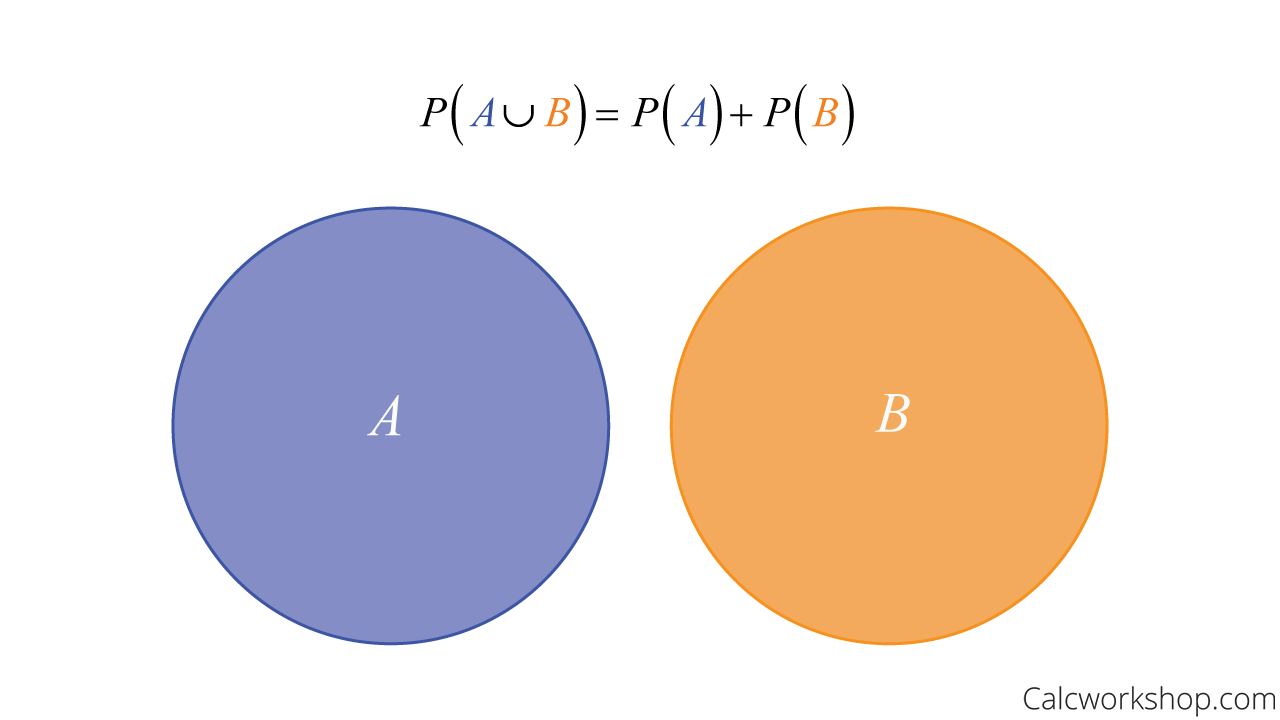

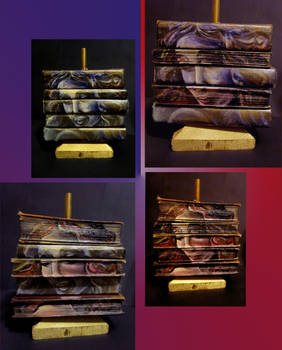
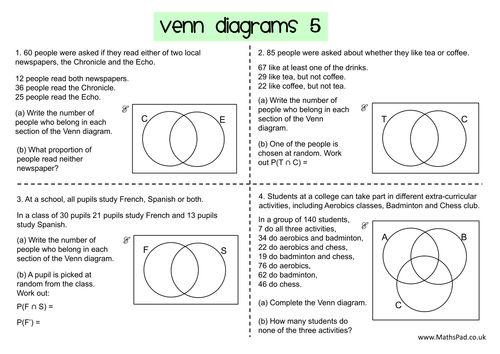

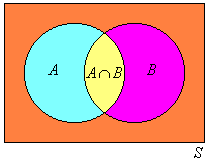
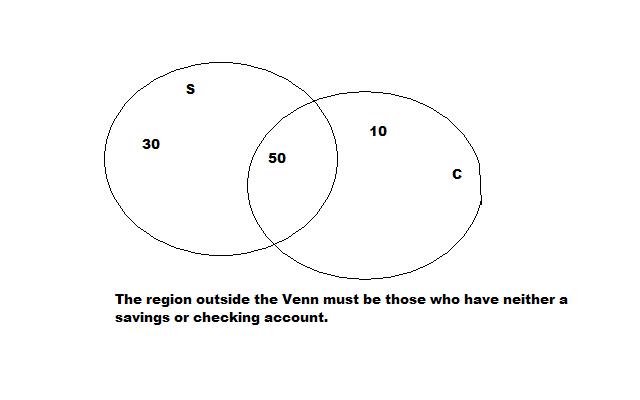
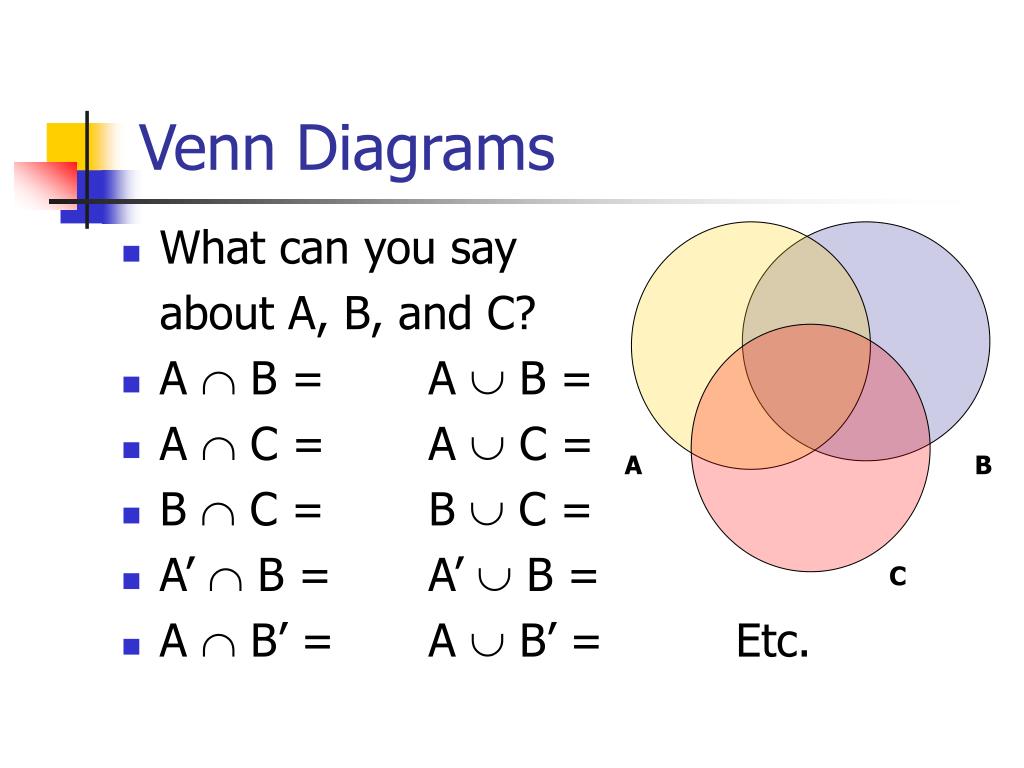

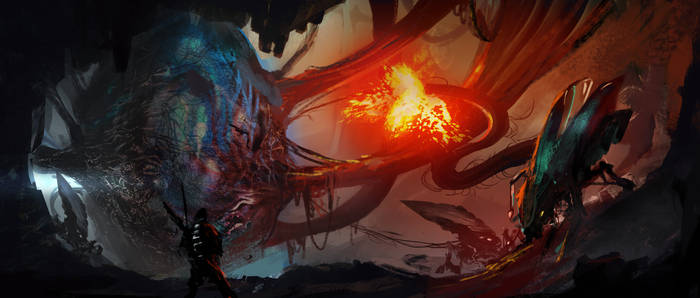
0 Response to "40 venn diagram mutually exclusive"
Post a Comment